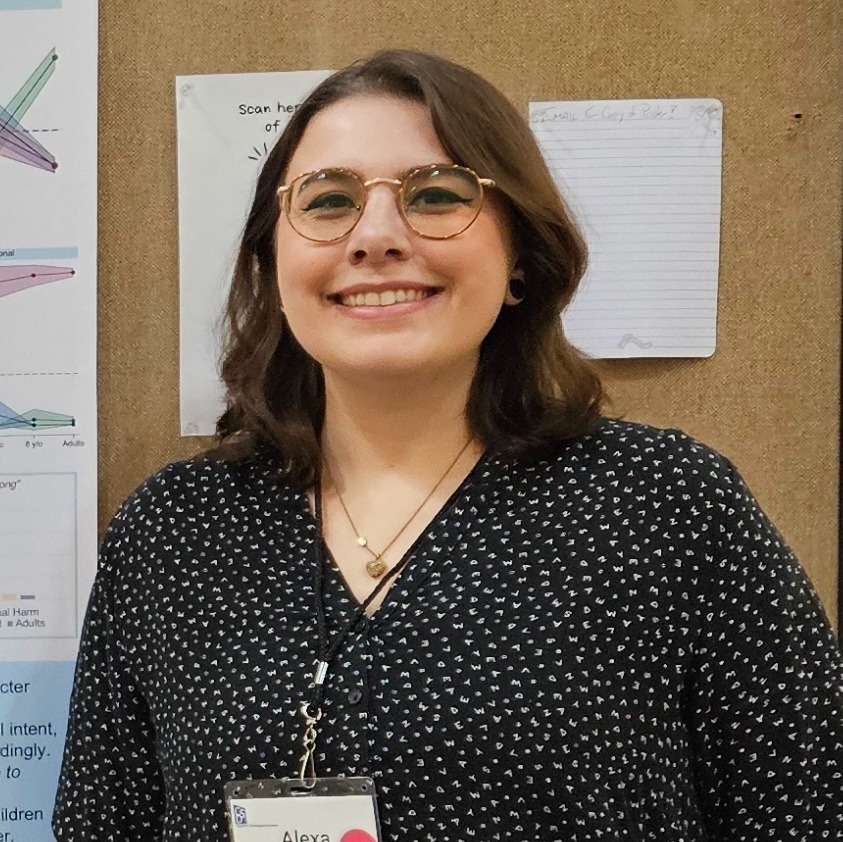
Alexa S
- Research Program Mentor
PhD candidate at University of Toronto, St. George Campus
Expertise
social psychology, developmental psychology, cognition, morality, moral character, mind perception, cancel culture, speciesism, vegetarianism, nature vs. nurture, intergroup cognition, group decisions, LGBT experiences
Bio
Hi there! I am a PhD Candidate in the Department of Psychology at the University of Toronto. I am broadly interested in the social cognitive development and moral reasoning of adults and children. I'm interested in topics including moral character development, perceptions of the self and others changing over time, mind perception (i.e., how do we view the minds of humans, animals, and robots?), and altruism. I love working with students and I'm willing to learn about topics outside of these areas as well! I'm originally from New Jersey and have a love for pizza, bagels, and Dunkin Donuts. I love to go to concerts, travel, and go on hikes. I also have 2 cats that may make an appearance during our session!Project ideas
Cancel culture & evaluations of moral character
We hear in the news that a beloved celebrity cheated on their spouse, a famous YouTuber gives a half-hearted apology, or a politician is involved in a money-laundering scandal. Even if these individuals once had a positive reputation, one immoral action can lead to public "cancellation". From this topic a few different research questions can emerge: -What is the function of pubically signaling moral praise or blame of individuals? -What does it take for someone to be "cancelled" or seen as immoral? How does this differ from being seen as a "hero" or "saint"? -Can immoral or "cancelled" individuals be redeemed in the public eye or forgiven? What would it take to do so? -What amount of reward is appropriate for "heroes" vs. punishment for "villians"? First we would start by looking at examples in pop-culture - what seems the same or different between those who are "loved" vs those who are "hated" in the public eye? Next, we would turn to the academic literature to see what research exists on this topic. Then, we would develop a research question and think of ways to test it. Many times, great research questions come from real-world experiences and intuitions! Students will learn how to formulate their ideas into quantifiable, research questions, test their hypothesis using validated scales or novel measures, and find out new information about our social world. As a take-away students can create an academic research poster, which is typical for academic conferences, a short research presentation, or a research proposal outlining how they would test their research question.